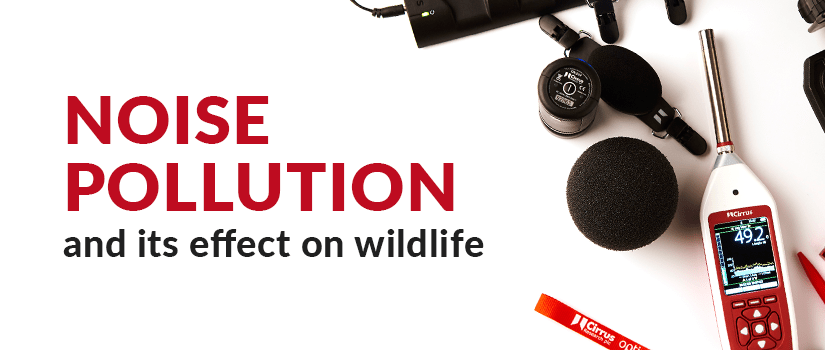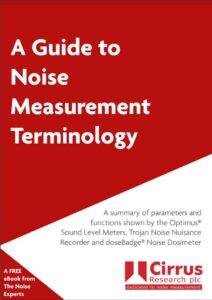Noise pollution and its effect on wildlife
Noise pollution is an invisible danger that affects the health and well-being of all life. In this series of blogs, we will be looking at noise pollution and how it affects wildlife, people, and the environment.
What is Noise Pollution?
Noise pollution, also known as environmental noise or sound pollution, is any unwanted or disturbing sound that has a harmful impact on the activity of human or animal life. It may be an invisible danger, but it is very much present in our everyday lives.
Noise pollution and wildlife
The World Health Organisation has stated that noise is one of the most hazardous forms of pollution. Studies have shown that loud noise can cause caterpillars’ hearts to beat faster and bluebirds to have fewer chicks. Noise pollution makes it difficult for animals to use sound for navigation, finding food, mating, and avoiding predators, affecting many animals’ ability to survive.
A paper published by Queen’s University Belfast titled ‘Biology Letters’ sheds light on the damage that noise pollution or human-made noise can have on wildlife.
In this study, over one hundred species were analysed and divided into seven groups: amphibians, arthropods, birds, fish, mammals, molluscs, and reptiles. The study was based on experiments in which different aspects of the animals’ behaviour were recorded before and after exposure to noise.
The results found evidence that noise pollution impacts all seven groups of species, and the different groups didn’t differ in their response to noise.
Dr Kunc from Queen’s University Belfast said, “We always talk about climate change, chemical pollution, plastic pollution and habitat destruction…but noise, especially in urban areas, can really have a negative impact on animals.”
Solutions to reduce noise pollution
It’s important to raise awareness of noise pollution, the causes, and its impact, to begin to make changes.
Simple lifestyle changes, such as avoiding noisy leisure activities, opting for alternative, quieter means of transport, insulating your home with noise-absorbing materials etc., are key to beginning the journey to reducing noise pollution.
Governments also play an essential role in ensuring correct noise management is being used. For example, protecting certain areas from noise, establishing regulations, installing noise insulation in new buildings etc.
We all have a role to play in beating the invisible enemy that is noise pollution, and we must stay vigilant to ensure that we protect our wildlife from further harm.
Jaymee-lee Tolliday
Latest posts by Jaymee-lee Tolliday (see all)
- Turning Down the Volume: How the Trojan Noise Nuisance Recorder can help create a quieter world - 13th February 2024
- Festive Opening Hours 2023 - 6th December 2023
- Award of Excellence for Cloud-Based Monitoring Solutions 2023! - 20th November 2023


